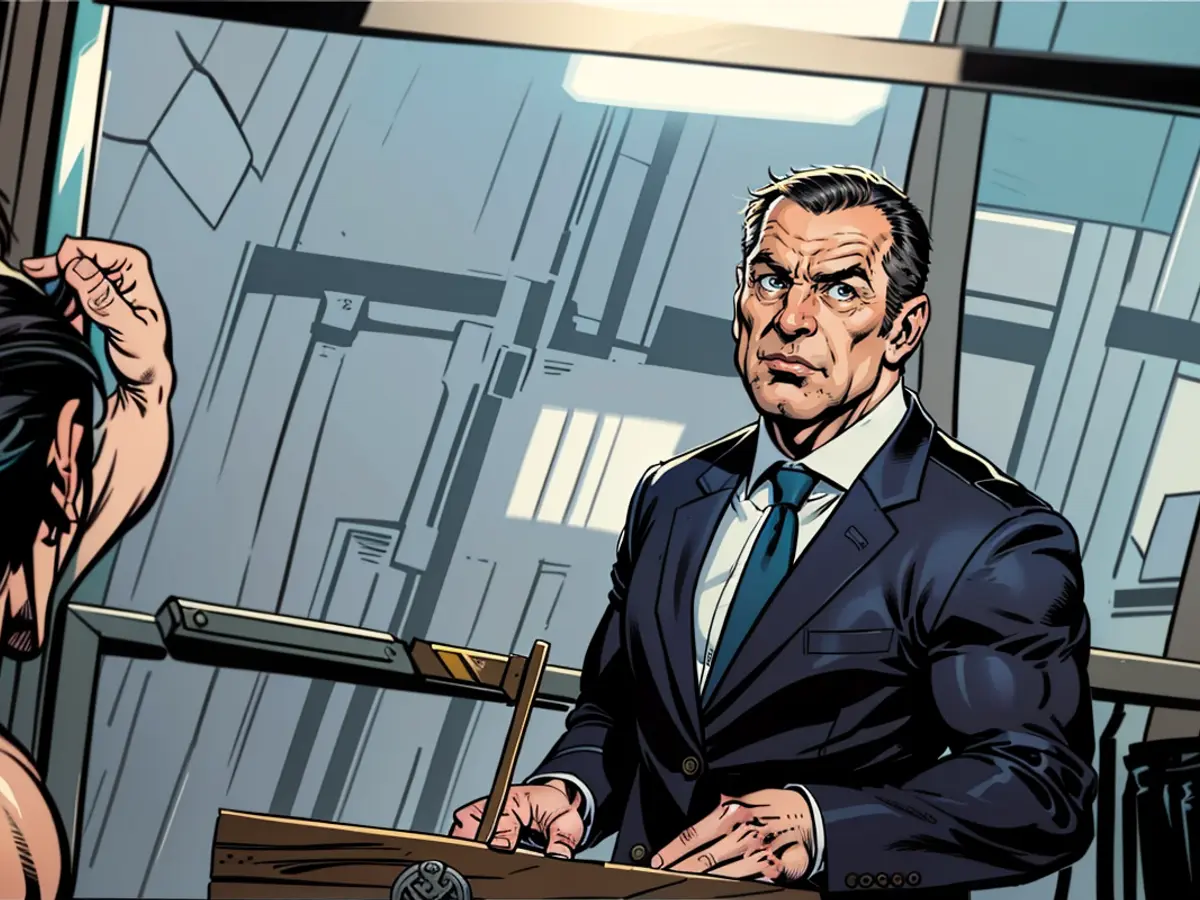Western prisoner exchange with Russia: Released in Germany and USA
Russia, Belarus, and on the other side, five NATO countries, including the USA and Germany, carried out the prisoner exchange on Thursday afternoon. It involved a total of 24 detainees, including the U.S. reporter Evan Gershkovich, who was imprisoned in Russia, and the so-called "Tiergarten Murderer" who was in German custody, as well as two minors.
The exchange was made possible "only through intense cooperation with many European countries and particularly the United States over a very long period," said Scholz. Regarding the exchange, the Chancellor said he believed "that this was the right decision." Anyone who doubts this, he said, would change their mind after speaking with those who are now free.
Russia released 15 prisoners, including four with German passports. The release of a German national who was initially sentenced to death and later pardoned in Belarus was also secured. The Germans were identified by AFP as Kevin Lik, Dieter Voronin, German Moyzhes, Patrick Schöbel, and Rico Krieger.
According to the Russian security service FSB, eight Russian prisoners and two minors were able to return to Russia. Among the prisoners was the so-called "Tiergarten Murderer" Vadim Krasikow. He was sentenced to life imprisonment in Germany in late 2021 for shooting a Georgian national of Chechen origin in Berlin's Tiergarten in August 2019. The court found that Krasikow had committed the murder on the orders of Russian state authorities.
Scholz said: "No one made this decision lightly, to deport a murderer convicted to life imprisonment after just a few years in prison." In this case, the state's interest in enforcing the sentence had to be weighed against "the risk of freedom, and in some cases life, for innocent people imprisoned in Russia and wrongfully political prisoners."
For the federal government, it was crucial "that we have a duty of care towards German citizens, as well as solidarity with the USA," said Scholz. U.S. President Biden thanked Germany and other allies for their involvement in the prisoner exchange, calling it a "diplomatic masterstroke" that ended the "suffering" of these prisoners.
President Biden and Vice President Kamala Harris welcomed three of the released prisoners in the U.S. on Friday morning. Reporter Evan Gershkovich, journalist Alsu Kurmasheva, and former U.S. soldier Paul Whelan were greeted with cheers by family members and friends at Joint Base Andrews near Washington.
"Not bad," Gershkovich replied to waiting journalists when asked how it felt to be back home after so long. "We can't wait to hug him," his family said in a statement. Among the released prisoners were also Russian opposition figure Vladimir Kara-Mursa and Russian human rights activist Oleg Orlov, co-chair of the banned Memorial organization.
Meanwhile, Russian President Vladimir Putin welcomed the released Russians at Moscow's airport. "I want to congratulate you on your return to your homeland," Putin said at Moscow's Vnukovo Airport, as shown on Russian state television. The Kremlin leader hugged several of the released Russians.
Disappointment was expressed by the relatives of the murder victim of the so-called Tiergarten murderer Krasikow, who live in Germany. "Not even five years after the murder" was the Kremlin chief "Putin-appointed murderer released," they said through their lawyer Inga Schulz. The release of Krasikow was "a devastating message for us relatives."
The prisoner exchange sparked different reactions in federal politics. The chairman of the Foreign Affairs Committee in the Bundestag, Michael Roth (SPD), stated on the online service X, "sometimes you have to make a deal with the devil for humanitarian reasons."
However, the CDU security expert Roderich Kiesewetter criticized this. "I fear that with the release of the convicted Tiergarten murderer, a precedent is being set that Russia can politically exploit massively," he told the "Tagesspiegel". Russia is "a terrorist state that is now actively trying to establish hostage diplomacy."
Amnesty International Germany stated that Putin's misuse of political prisoners as "leverage" leaves a "bitter taste."
The exchange included the release of a German national who was initially sentenced to death and later pardoned in Belarus, which was facilitated by Russia. Russia released 15 prisoners, including four with German passports, as part of the prisoner exchange.







